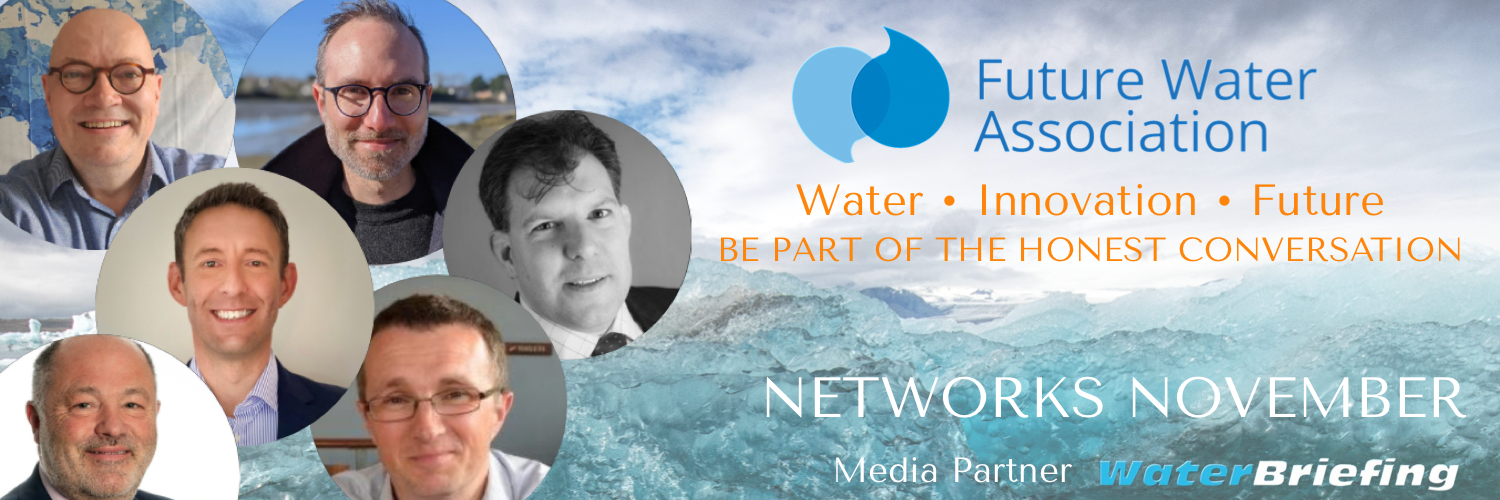Navigating the waters of change
Navigating the Waters of Change: A Pivotal Exploration into Sustainable Housing Developments
Fareita Udoh, Project Manager, BUILDOFFSITE
In a groundbreaking collaboration between Future Water, CIRIA, and BUILDOFFSITE, the Networks November event held in Kings Cross on November 6th embarked on a transformative exploration into the intricate relationship between developers, water companies, regulatory landscape, and suppliers. This full-day event, titled "Developer Services," proved to be a dynamic platform where industry leaders, innovators, and stakeholders converged to discuss and deliberate on the challenges and opportunities in forging connected utilities for new housing developments and the built environment.
SuDS was a recurrent theme and referenced throughout the day. Sustainable Drainage Systems are an approach to managing rainwater runoff in a more environmentally friendly and sustainable manner. Traditional drainage systems often involve channeling rainwater quickly away from an area, which can lead to issues such as flooding, pollution, and erosion.
SuDS, on the other hand, aim to mimic natural drainage processes, allowing rainwater to be absorbed into the ground where it falls, or to be temporarily stored and released slowly. This helps reduce the risk of flooding, improves water quality, and contributes to overall environmental sustainability.
Examples of SUDS techniques include permeable paving, green roofs, rain gardens, and swales. These systems are increasingly being incorporated into urban planning and construction to promote more sustainable water management practices.
Convergent Insights from Esteemed Presenters
The event boasted an array of distinguished presenters, each bringing a unique perspective to the table. Paul Horton, CEO of Future Water, took on the pivotal role of facilitating the all-day workshop, steering discussions toward focus, productivity, and actionable outcomes.
Phillip Dixon of OFWAT shedding light on incentives for house developers to embrace sustainability, however small these steps may be it is a step in the right direction.
Adrien Baudrimont, CIRIA Research Manager, delved into effective assessment tools for the benefits of blue and green infrastructure. Highlighting the pivotal role of effective assessment tools, citing Ciria as the go-to platform for maximising the advantages of sustainable drainage solutions.
Dr. Neil Sewell, Director of Technology Systems at SDS Limited, provided valuable insights into technological advancements in Sustainable Drainage Systems (SuDS) with insights into technological advancements underscoring the importance of continuous innovation in Sustainable Drainage Systems (SuDS) and Blue Green Infrastructures (BGI), contributing to the overarching vision of a more sustainable water sector.
Richard Armstrong of Ryan, R&D Tax Specialists outlined Government-Led Initiatives and Untapped Funding across six key areas for the water industry such as R&D and capital allowances, with HMRC supporting these initiatives. There is a lack of knowledge across the sector on initiatives available and how these can help drive investment.
Legislation
The conversation delved into the challenges of making legislative changes, particularly questioning why the UK Government has not mandated compliance for sustainable practices.
Department for Environment, Food & Rural Affairs (Defra) aims to implement Schedule 3 in 2024, emphasising a consistent approach to Sustainable Drainage Systems (SuDS). The Flood and Water Management Act 2010 initially introduced provisions for SuDS in England and Wales. Schedule 3 of this Act relates to SuDS. The implementation of Schedule 3 could involve specific requirements and standards for the design, approval, and maintenance of Sustainable Drainage Systems. The goal is to ensure that new developments incorporate effective and sustainable drainage practices to mitigate flood risk and enhance water quality.
Industry Wide Collaboration
Martin Ballard from Wates Group echoed the sentiment of a collective, industry-wide approach led by the government to navigate the complexities faced by developers. This rallying cry for collaboration reverberated throughout the event, emphasising the need for a united front where all industry stakeholders work collaboratively to overcome barriers to sustainable practices.
Attitudes & Perceptions
To enhance water conservation in the UK, a holistic approach is needed, involving public awareness, technological innovation, infrastructure investment, and policy adjustments. As water becomes an increasingly precious commodity globally, recognising and addressing these challenges will be essential to ensuring a sustainable and resilient water future for the UK.
Steering Toward Success
The presenters collectively underscored the significance of very early stage discussions in shaping the eventual outcomes of sustainable water solutions. There was a rallying call to action to join the Steering Group, led by ciria, with an aim to equip industry stakeholders with essential questions at the inception of developments, steering them in the right direction from the outset. “Getting SuDS Right from the Start”. Focus on improving early decision making by local planning authorities, land agents/promoters and developers, to support projects to deliver on their early green ambitions; without late-stage value engineering and commercial viability driving out these opportunities.
- How SuDS can maximise economic, environment and societal benefits for all parties involved.
- Why the very earliest stage discussions are critical to the eventual outcomes.
- Equip parties with simple early questions to set developments off in the right direction.
Contact Adrien Baudrimont to get involved.
Conclusion
The face to face Networks November event illuminated not only the challenges and frustrations within the water sector but also the tremendous opportunities for sustainable housing developments.
The perspectives presented by industry leaders underscored the need for collaborative action.
As the industry looks toward government-led initiatives and the implementation of Schedule 3, the call to action for participation in a Steering Group “Getting SuDS Right from the Start”, emphasises the urgency of collaborative efforts to navigate the waters of change successfully.
The time is ripe for a united front, where industry stakeholders, government bodies, and innovative tools converge to pave the way for a sustainable future in water management.
Click here to read more and view the presentations.
If you would like to join CIRIA, Future Water and BOS click, or get in touch!




